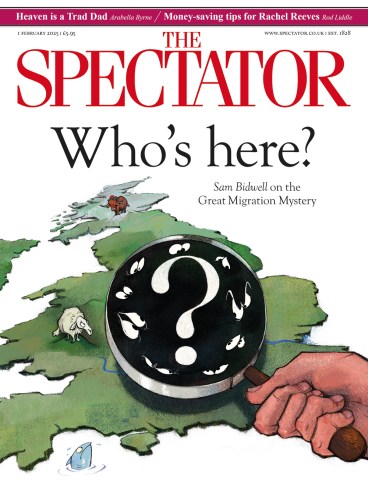
I probably won’t be the only one to say this of Vincenzo Latronico’s Perfection: it made me feel seen, and not in a good way. The novel takes aim at aspects of modern life, from social media to remote working and interior design trends, that aren’t obvious subjects for serious literary attention. Latronico, a philosopher who writes in Italian (this is his first novel to appear in English), suggests that our online profiles and material possessions have taken the place of integrity and community in society. He makes you question whether there can still be such a thing as an authentic personality.
The narrative follows a couple whose existence is, to all appearances, very pleasant. Expats in Berlin, Anna and Tom work cushy freelance jobs as ‘creative professionals’ and have filled their lives with nice things: a spacious apartment, complete with monstera plants and issues of the New Yorker; nights out at Berghain; home-cooked dinners, featuring ingredients such as pomegranate and sumac. They document all this on Instagram, where, alongside the ‘tangible reality around them’, they conduct a ‘double life’: ‘the images’, Latronico tells us, are ‘also all around them’.
It’s in this second realm that the trouble starts. Captivated by the never-ending stream of ‘beauty’ they consume online, the pair become dissatisfied by reality. Having moved to Berlin because their lives in their unnamed southern European homeland (probably Italy) ‘seemed to run on a fixed set of tracks’, ennui follows Anna and Tom wherever they go. ‘Perfection’, for them, is when things appear ‘just like in the pictures’; that is, when reality lives up to the representation of it that they and their friends send out on social media. Real life is secondary; what matters is ‘the frame’, where they can prove to others that their lives are interesting.
The reader can’t help but ‘feel seen’ – to use internet parlance – because Anna and Tom’s story is so deliberately archetypal. Their inner lives are left completely blank: they never speak, and Latronico’s repeated use of the conditional ‘they would’ to describe their actions makes them seem habitual and unvarying rather than propelled by distinct ideas or desires. The couple (who are always described as a unit; to introduce friction between them would be to give them substance) represent a generation whose ‘inner landscape’ has been ‘reconfigured by 20 years of the internet’.
Perfection captures with uncanny precision the sorry state of things in an era where abundance – of choices, of possessions, of personal freedoms – has brought the opposite of fulfilment. With their wants met, Anna and Tom can’t work out what there is left to care about. Previous generations, they muse, had an easier time of it:
The problems back then might have been more urgent, but now there were too many choices, with each one leading off on endless branches, preventing any real change. Their idea of a revolutionary future didn’t go beyond gender balance on corporate boards, electric cars, vegetarianism.
When ‘revolution’ means simply appearing progressive, conviction is hard to come by. The couple try to inject themselves with a sense of purpose by volunteering at a centre for Syrian refugees but realise that their presence is superfluous. Unable to speak German or Arabic, they are simply in the way.
Their problem – indeed, our generation’s problem – is that the digital realm has rendered us marooned in the physical world. Meanwhile, places have become homogenised. Anna and Tom move to Lisbon, seeking novelty there, but are dismayed to find that it is ‘somehow all the same’: ‘The brand of oat milk in their flat whites was the same.’ Their lives – as they never quite realise, but the reader is shown – completely lack community. Sharing with others only their ‘identical struggle for a different life’, they are expendable, like everything else around them.
Perfection owes a lot to Georges Perec’s Things: A Story of the Sixties, to which it was written as a tribute. The premise of Perec’s novel, published in 1965, is essentially the same as Latronico’s. It depicts the chronic dissatisfaction of a couple obsessed with generating the appearance of prosperity. By projecting this scenario on to the present day, Latronico demonstrates how social media has compounded the worst of consumerism, causing a stultifying sameness to become one of the defining features of modern life. It’s a bleak parable told through a muted narrative. Lacking decisive characters at its centre, the story unfolds without forward momentum and peters out inconclusively. But in a world where ‘perfection’ entails stasis, perhaps that’s what a happy ending looks like.







Comments